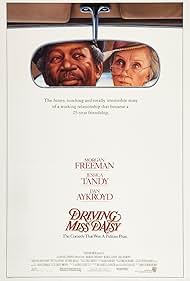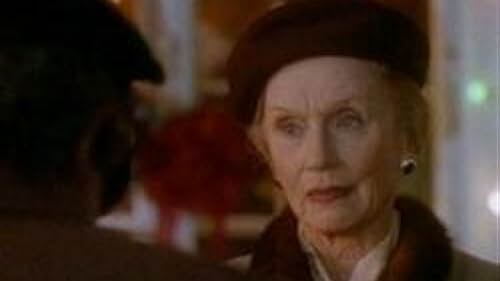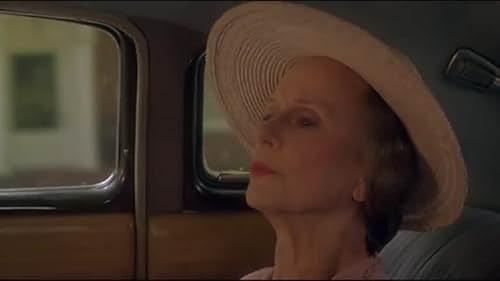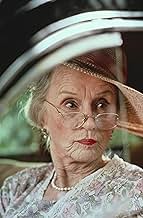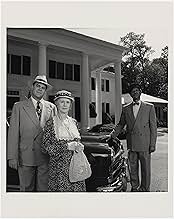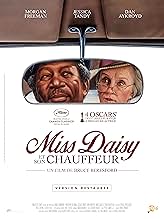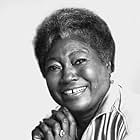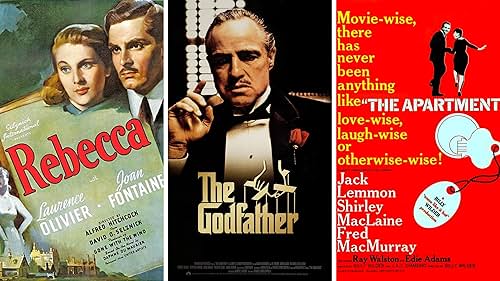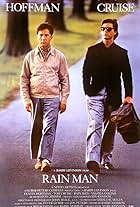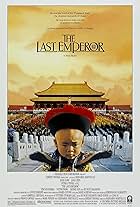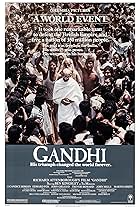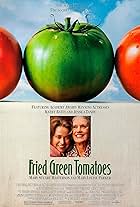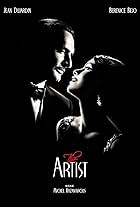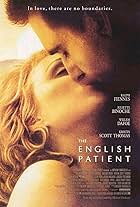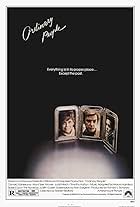IMDb RATING
7.3/10
119K
YOUR RATING
An old Jewish woman and her African-American chauffeur in the American South have a relationship that grows and improves over the years.An old Jewish woman and her African-American chauffeur in the American South have a relationship that grows and improves over the years.An old Jewish woman and her African-American chauffeur in the American South have a relationship that grows and improves over the years.
- Won 4 Oscars
- 22 wins & 24 nominations total
Patti LuPone
- Florine Werthan
- (as Patti Lupone)
Jo Ann Havrilla
- Miss McClatchey
- (as Joann Havrilla)
Crystal Fox
- Katie Bell
- (as Crystal R. Fox)
Best Picture Winners by Year
Best Picture Winners by Year
See the complete list of Best Picture winners. For fun, use the "sort order" function to rank by IMDb rating and other criteria.
Storyline
Did you know
- TriviaThree black men are seen crossing railroad tracks in Atlanta. All three of these men are descendants of the real person (Will Coleman) that the "Hoke" character was based upon.
- GoofsThe bombing of The Temple in Atlanta took place in 1958, yet is shown as occurring in 1966 or later (because it is shown after the scene in which Boolie receives an award in 1966). Hoke is also driving mid-1960s Cadillac in the scene.
- Quotes
Daisy Werthan: Hoke?
Hoke Colburn: Yes'm.
Daisy Werthan: You're my best friend.
Hoke Colburn: No, go on Miss Daisy.
Daisy Werthan: No, really, you are...
[Takes Hoke's hand]
Daisy Werthan: You are.
Hoke Colburn: Yes'm.
- Crazy creditsFilm title logo appears at the end of closing credits
- ConnectionsFeatured in Precious Images (1986)
- SoundtracksAfter The Ball
(1892)
Words and Music by Charles Harris (as Charles K. Harris)
Sung a cappella by Jessica Tandy (uncredited)
Published by Charles K. Harris Publishing Company, Inc.
Featured review
It's hard to imagine someone seeing "Driving Miss Daisy" without being moved somehow, yet few films suffer more in terms of reputation from winning a Best Picture Oscar. In disparaging "Daisy," many myths have sprung up that cloud the film's legacy and need addressing.
1. "Driving Miss Daisy" won because 1989 was a weak year for movies - 1989 was a great year for movies. Among the films out that year which weren't even nominated for Best Picture were "Glory," "Henry V," "Do The Right Thing," "Parenthood," "Batman," "Crimes And Misdemeanors," "The Adventures Of Baron Munchausen," "sex, lies, and videotape," "Steel Magnolias," and "When Harry Met Sally." Unlike most years, any of the five Best Picture nominees could have won without anyone being too upset.
2. "Driving Miss Daisy" is a syrupy feel-good exercise devoid of grit - While made in an artfully soft-focus and gentle style in keeping with the spirit we associate with the American South of recent bygone days, director Bruce Beresford and writer Alfred Uhry present us with a complicated and tricky story that challenges us right away. How many films get made showing old Jewish women complaining a poor black man stole a 33 cent can of salmon from her pantry? "Daisy" allows its central character to say some astounding things about blacks ("They all take things, you know," "They're like children,") and yet trusting us to have the tolerance to watch her grow.
3. "Driving Miss Daisy" was popular because it features a passive black man - Morgan Freeman as Hoke gives a haunting, multi-layered performance of someone who is anything but passive. Because he is a black man in the Jim Crow South, he must make do working as a driver for Miss Daisy despite her resentment of him (which stems from her anger over her infirmity, not his skin color, to address another myth.) Hoke is a model of stoic patience, of finding silver linings and angles, and breaking down barriers through common sense. "You needs a chauffeur and Lord knows I needs a job," is how he puts it to Miss Daisy. "Now why don't we leave it at that?" Of course, his patience with Miss Daisy over time yields more than a mere truce, not to mention a healthy raise and some fine used automobiles. And he retains his dignity in every scene.
4. "Driving Miss Daisy" is mainly about race - Race is a theme, but the central theme is the passage of time. The film presents us with small vignettes, connected to seasons of the year, charting the growing relationship between Hoke and Daisy. As the characters age, we see every wrinkle on their skin and sense without anything being pointed out too strongly just how fragile and fleeting this thing called life really is. By film's end, long after race has been addressed, we are giving witness to the elusive pleasures of life in the face of Miss Daisy's mortality, a tough message for any movie to go out on, especially one as ultimately life-affirming as this.
5. Jessica Tandy won her Oscar out of sympathy because of her age - She won it because she was good. Very good. Check out her scene when she tells Hoke about visiting the Gulf of Mexico and tasting the saltwater on her fingers, then snapping at herself for being so silly. Then you get winning zingers, delivered with impeccable vinegar, like this about her assimilated daughter-in-law: "If I had a nose like Florine, I wouldn't say Merry Christmas to anybody." Ouch! I actually am less won over by that famous line of hers, "You're my best friend," because she makes the point so well with Hoke throughout the latter half of the film in many better ways.
6. It's boring - "Daisy" runs only a little over 90 minutes, and makes the most of every one of them. Nothing runs too long. When a member of the household dies, you get a falling bowl and then a singing choir. When Daisy teaches Hoke to read, it's represented by a small sequence in a graveyard and then let go. It would seem abrupt on the pages of the script, yet Mark Warner's crafty editing and Hans Zimmer's deft score make it all seem so natural.
7. Films like "Driving Miss Daisy" get made all the time - The only film that mixes comedy and pathos as effectively as this that I'm aware of is "Being There." But while that classic Peter Sellers film is something of a fantasy, "Daisy" is so grounded in reality it makes its ultimately uplifting character that much more satisfying.
1. "Driving Miss Daisy" won because 1989 was a weak year for movies - 1989 was a great year for movies. Among the films out that year which weren't even nominated for Best Picture were "Glory," "Henry V," "Do The Right Thing," "Parenthood," "Batman," "Crimes And Misdemeanors," "The Adventures Of Baron Munchausen," "sex, lies, and videotape," "Steel Magnolias," and "When Harry Met Sally." Unlike most years, any of the five Best Picture nominees could have won without anyone being too upset.
2. "Driving Miss Daisy" is a syrupy feel-good exercise devoid of grit - While made in an artfully soft-focus and gentle style in keeping with the spirit we associate with the American South of recent bygone days, director Bruce Beresford and writer Alfred Uhry present us with a complicated and tricky story that challenges us right away. How many films get made showing old Jewish women complaining a poor black man stole a 33 cent can of salmon from her pantry? "Daisy" allows its central character to say some astounding things about blacks ("They all take things, you know," "They're like children,") and yet trusting us to have the tolerance to watch her grow.
3. "Driving Miss Daisy" was popular because it features a passive black man - Morgan Freeman as Hoke gives a haunting, multi-layered performance of someone who is anything but passive. Because he is a black man in the Jim Crow South, he must make do working as a driver for Miss Daisy despite her resentment of him (which stems from her anger over her infirmity, not his skin color, to address another myth.) Hoke is a model of stoic patience, of finding silver linings and angles, and breaking down barriers through common sense. "You needs a chauffeur and Lord knows I needs a job," is how he puts it to Miss Daisy. "Now why don't we leave it at that?" Of course, his patience with Miss Daisy over time yields more than a mere truce, not to mention a healthy raise and some fine used automobiles. And he retains his dignity in every scene.
4. "Driving Miss Daisy" is mainly about race - Race is a theme, but the central theme is the passage of time. The film presents us with small vignettes, connected to seasons of the year, charting the growing relationship between Hoke and Daisy. As the characters age, we see every wrinkle on their skin and sense without anything being pointed out too strongly just how fragile and fleeting this thing called life really is. By film's end, long after race has been addressed, we are giving witness to the elusive pleasures of life in the face of Miss Daisy's mortality, a tough message for any movie to go out on, especially one as ultimately life-affirming as this.
5. Jessica Tandy won her Oscar out of sympathy because of her age - She won it because she was good. Very good. Check out her scene when she tells Hoke about visiting the Gulf of Mexico and tasting the saltwater on her fingers, then snapping at herself for being so silly. Then you get winning zingers, delivered with impeccable vinegar, like this about her assimilated daughter-in-law: "If I had a nose like Florine, I wouldn't say Merry Christmas to anybody." Ouch! I actually am less won over by that famous line of hers, "You're my best friend," because she makes the point so well with Hoke throughout the latter half of the film in many better ways.
6. It's boring - "Daisy" runs only a little over 90 minutes, and makes the most of every one of them. Nothing runs too long. When a member of the household dies, you get a falling bowl and then a singing choir. When Daisy teaches Hoke to read, it's represented by a small sequence in a graveyard and then let go. It would seem abrupt on the pages of the script, yet Mark Warner's crafty editing and Hans Zimmer's deft score make it all seem so natural.
7. Films like "Driving Miss Daisy" get made all the time - The only film that mixes comedy and pathos as effectively as this that I'm aware of is "Being There." But while that classic Peter Sellers film is something of a fantasy, "Daisy" is so grounded in reality it makes its ultimately uplifting character that much more satisfying.
Details
- Release date
- Country of origin
- Languages
- Also known as
- Šofer gospođice Daisy
- Filming locations
- 822 Lullwater Road, Druid Hills, Atlanta, Georgia, USA(Miss Daisy's house)
- Production companies
- See more company credits at IMDbPro
Box office
- Budget
- $7,500,000 (estimated)
- Gross US & Canada
- $106,593,296
- Opening weekend US & Canada
- $73,745
- Dec 17, 1989
- Gross worldwide
- $145,793,296
- Runtime1 hour 39 minutes
- Color
- Sound mix
- Aspect ratio
- 1.85 : 1
Contribute to this page
Suggest an edit or add missing content

